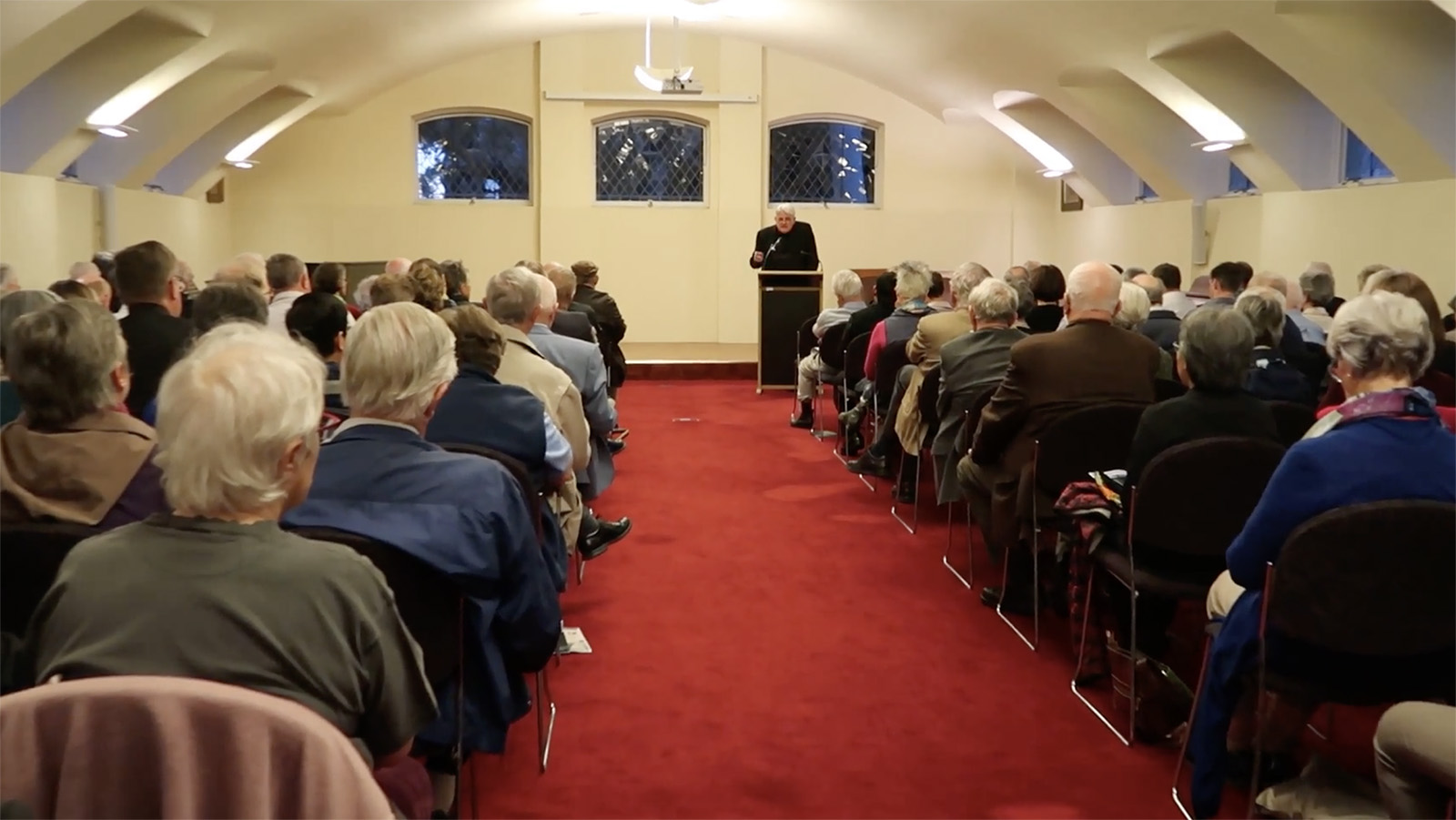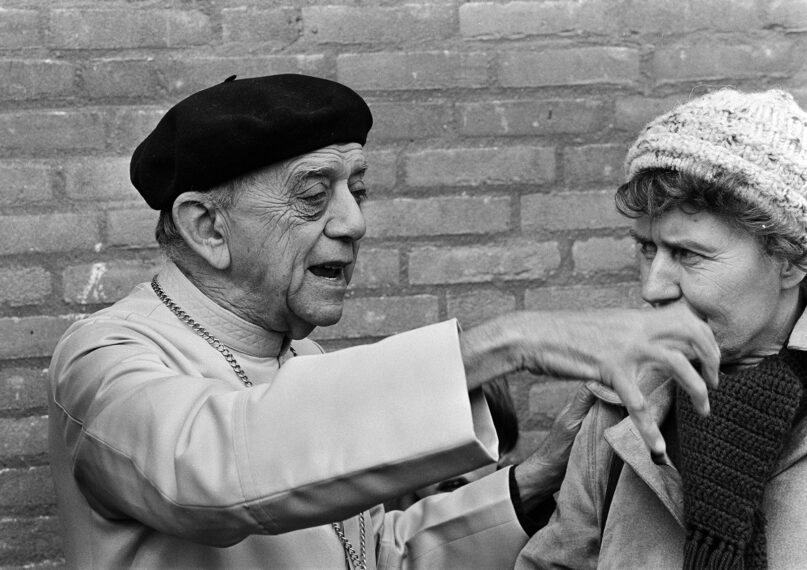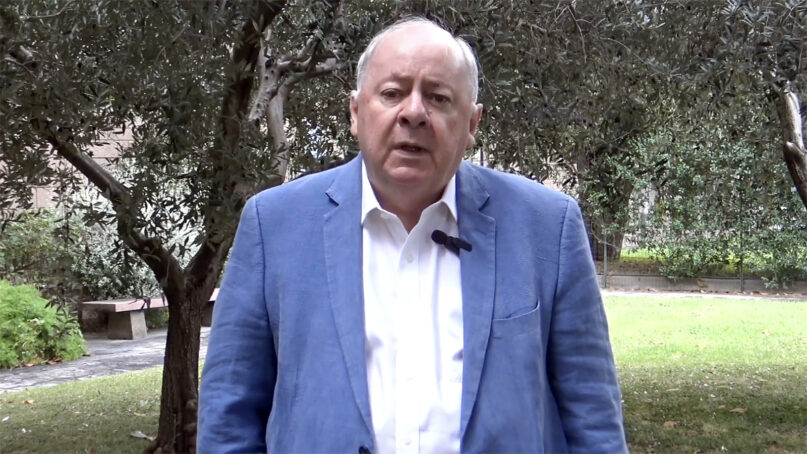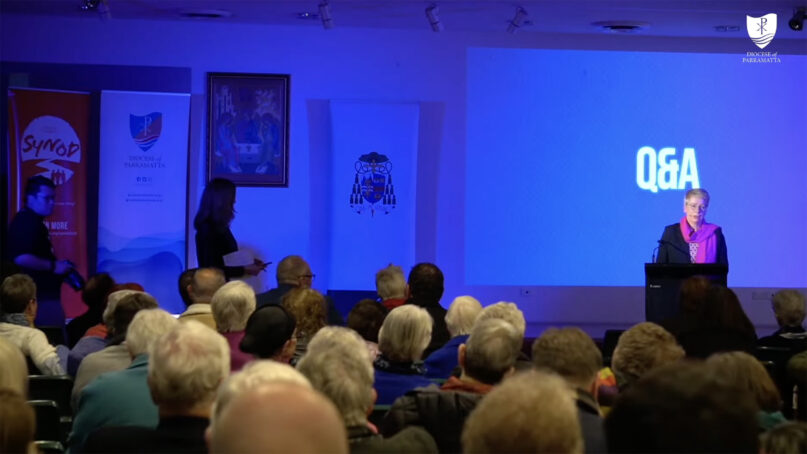
(RNS) — In 2001, Harvard University law professor Mary Ann Glendon received an unusual phone call, asking if she’d like to spend three weeks giving a series of talks and workshops to Catholics across Australia.
It was “the last thing I was expecting,” said Glendon, who in 1995 became the first woman to head a Vatican delegation, at the United Nations’ World Conference on Women, and later served as the U.S. ambassador to the Holy See.
For each of the last 40 years, some of the brightest thinkers in the Catholic Church, like Glendon, received requests like this and have ultimately agreed to spend weeks or more in Australia delivering the Hélder Câmara Lecture. Among those who have made the trek are cardinals, including Basil Hume, Joseph Bernardin, Francis George, Oscar Rodriguez, Luis Antonio Tagle, Walter Kasper, Timothy Dolan, Jean-Marie Lustiger, Blase Cupich and Robert McElroy; journalists, such as Christopher Lamb and Austen Ivereigh; and theologians, such as Walter Brueggemann, Margaret Silf, the Rev. Greg Boyle and Sister Nathalie Becquart.
Since its inception, the lecture has been the vision of Marist brother Mark O’Connor. Originally from a suburb of Melbourne, the 69-year-old O’Connor serves as vicar of communications for the Diocese of Parramatta in the Australian state of New South Wales.
He spent his early years in the Marists teaching high school and soon found himself wrestling with what today is an existential crisis for the church: “a whole generation of Catholics who spend 12 years in Catholic schools and leave completely alienated from the institutional church, despite the best efforts of all sorts of people,” he said.
Considering his own upbringing, he noted that what fed his faith was not the lessons he learned in school so much as the “authenticity in faith” of certain people. “Faith is caught, not taught,” he said.

Brazilian Archbishop Dom Hélder Câmara in 1981. (Photo by Marcel Antonisse/Anefo/Wikimedia/Creative Commons)
O’Connor first invited Brazilian Archbishop Dom Hélder Câmara, known throughout the world for his outspoken commitment to the poor, to give talks to young Australians in 1985. O’Connor hoped Câmara might provide a spark of religious inspiration Catholic youth weren’t finding elsewhere. Câmara’s visit proved a revelation, O’Connor said.
“Câmara could barely speak English and he looked a bit like ET,” O’Connor told RNS, “but he had this charisma. You felt somehow that you were in the presence of God.”
Though O’Connor didn’t know where the funds would come from, he wanted to try to make a lecture like this a yearly event, named after Câmara. At first, speakers came as part of a Marist Youth Festival that O’Connor organized in Melbourne, with the support of his Marist community. Eventually, with the help of benefactors, O’Connor was able to bring speakers independently — sometimes as many as six or seven over the course of a year — to speak at the University of Melbourne’s Newman College, which now hosts the lecture, and elsewhere.
With this year’s speakers — who include Mauricio Lopez, lay head of the Amazonian Ecclesial Conference; Ghanaian ethicist Nora Nonterah; and Cardinal Stephen Chow, bishop of Hong Kong — O’Connor will have brought in 100 speakers from around the world over the four decades.
Usually wearing a simple sport coat and open-collared shirt, O’Connor cuts an unassuming figure. But former lecture guests noted his determination and creativity. After Cardinal Carlo Martini, then-archbishop of Milan, refused written invitations from him eight years in a row, O’Connor flew to Milan to petition him in person. Martini came two years later. William Cavanaugh, a professor of Catholic studies and director of the Center for World Catholicism & Intercultural Theology at DePaul University in Chicago, likewise initially passed when O’Connor asked the theologian to come in 2006.

Brother Mark O’Connor speaks about the Synod on Synodality in 2023. (Video screen grab)
“We had three little boys,” Cavanaugh said. “I couldn’t leave and go to Australia.” O’Connor told him to bring everyone, and the family spent five-and-a-half weeks there. While Cavanaugh gave 26 talks, O’Connor’s staff arranged outings for his wife and children, as well as a five-day vacation for the whole family at the beach house of a benefactor.
“(Theologist) James Keenan has a definition of mercy as ‘entering into the chaos of others,’” Cavanaugh said. “I think that’s Mark. He’s brave. He doesn’t have to have things safe and tidy.”
While Catholic universities typically bring in similar figures each year, the Hélder Câmara Lecture offerings – which often include talks at parishes and schools — remain rare, former speakers told RNS. “As far as I know, there’s nothing of its kind,” Glendon said. “And we need it.”
Retired Tucson Bishop Gerald Kicanas, who spoke in 2010, said, “Many of the people he’s invited are very, very busy, but he has a way of convincing you that it would be a real benefit for you as well as to his community to come down.”
It’s not just a smart sales pitch. In addition to “having a ball,” Glendon said, she met then-Sydney Cardinal George Pell for the first time in Australia. He would later appoint her to the Vatican bank board.
“One of the reasons he felt confident in making me part of the financial reforms of the Vatican was he’d gotten to know me in Australia,” she said.

Myriam Wijlens takes questions after her presentation from St. Patrick’s Cathedral Hall in Parramatta, Australia, on Aug. 5, 2024. (Videos screen grab)
Theologian Maureen O’Connell, a professor at La Salle University in Philadelphia, who came for three weeks with her sister in 2013, said she gained what have become lifelong friends and colleagues, and a sense of greater empowerment.
“I was still an emerging scholar,” she said. “To be part of this very significant lecture series really built up my confidence. It validated me as somebody who had something to contribute.”
O’Connor also showed her a different vision of the church. At one point, O’Connell was told she would give a talk on faith to people struggling with recent revelations of clergy sexual abuse in Melbourne. When O’Connor said she’d be doing the talk with then-Spokane Bishop Blase Cupich, she was thrown.
“I said, ‘Brother Mark, U.S. theologians and bishops aren’t in the common practice of presenting together,” she said at the time. “’Our cultures are just a little bit different.’” She remembers O’Connor’s response: “You’re both fantastic, and this is what the people here need. Trust God, it’ll be fine.” She told RNS, “You know, he was right.”
Many speakers also talked about the dinners O’Connor arranged, and the intention he showed in bringing specific people together. “He’s deeply interested in recognizing the gifts that you bring to the church and how to put them in concert with other gifts and people,” O’Connell said.
While O’Connor continues to curate Câmara events for students, over the years the program has grown a following with older Catholics as well.
“For me, the most encouraging thing about the series is that it has kept the vision of the Second Vatican Council alive locally and beyond,” said Parramatta Bishop Vincent Long.
O’Connor is quick to dismiss praise for his work. “I get energy from it,” he said. “It gives me hope. It gives me reason to get up and continue on.
“I’m a very ordinary person with my own wounds, limitations and vulnerabilities,” he added.
But 40 years of the Hélder Câmara Lecture and 50 years as a Marist have taught him something important: “You can still find hope in the Catholic Church, if you look for it.”
